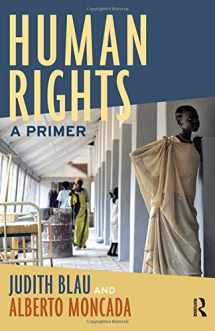
Human Rights: A Primer
Book details
Summary
Description
Achieving human rights is an ongoing struggle―in fact a collective struggle. Even though the progressive realization of human rights for all depends on international, national, and local laws, human rights are realized on the ground, in praxis and reciprocally, which is to say, in deeply democratic communities and societies.
The logic of human rights and the logic of capitalism and profit-making have always been somewhat at odds with one another because self-interest rests somewhat uneasily in the realm of solidarity and collective struggle, but the advent of market fundamentalism in the 1980s put these two logics in dramatic opposition with one another. When Prime Minister Thatcher stated, “there is no such thing as society,” what she really meant was societies are obstacles to the operation of unencumbered financial, commodity, labor, and land markets. Since the mid-1980s, the world economy has increasingly been dominated by voracious multinationals that exploit workers and the environment and, with the assistance of international agencies, exploit national and local governments.
As opposed to the logic of profits, the logic of human rights relies on social solidarity, which is to say, collectively working together to promote human rights. The interesting paradox of human rights is that all humans have equal rights and unique rights. That is they have equal rights to freedom, self-determination, economic and social security, democracy, and peace. Yet all humans have equal rights to their own particular identity, personality, faith, and culture. Of course there are also rights that particular groups have, such as the members of a language community or an indigenous group or people with disabilities. Quite simply enacting human rights ensures our inclusive humanness. Quite possibly people did not fully appreciate the significance of this until the age of globalization.


We would LOVE it if you could help us and other readers by reviewing the book
Book review



